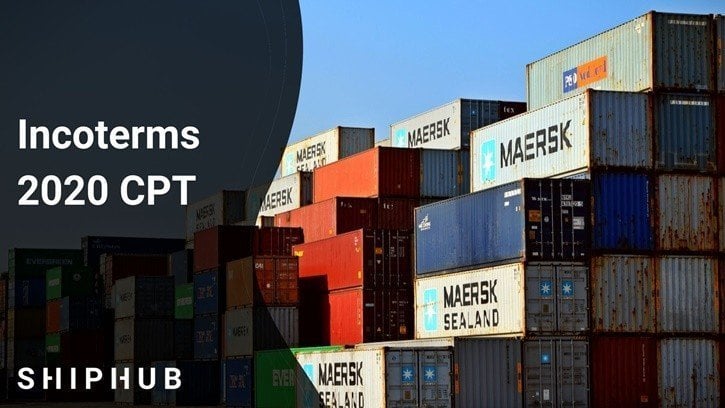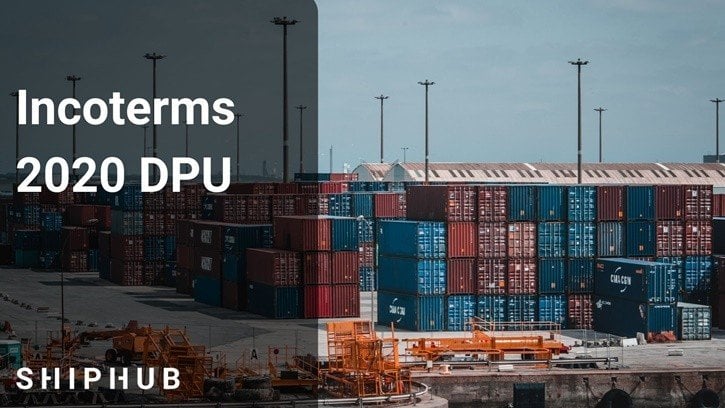Incoterms are international trade rules that indicate the share of the costs and responsibility between the buyer and the seller. From the beginning of 2020, the updated Incoterms 2010 rules will come into force. One of the rules is CPT (Carriage Paid To).
Incoterms 2020 CPT – Allocation of costs
| The seller takes: | The buyer takes: |
| all costs relating to the goods and their transport until delivery to the carrier; | all costs relating to the goods and their transport from the moment they were handed over to the carrier (excluding the seller’s obligations); |
| loading costs (at the carrier) and possible unloading costs; | transit costs excluding the seller’s obligations stated in the contract of carriage; |
| costs of providing the seller with documents stating that goods have been delivered; | unloading costs, unless it is the seller’s obligation stated in the contract of carriage; |
| transit costs for the buyer’s account and the costs of export clearance; | import clearance and transit costs; |
| costs incurred by the buyer related to export formalities. | possible costs incurred by the seller related to import formalities. |
What are the seller’s obligations?
- Seller provides commercial invoice and other required documents in paper or electronic form.
- Seller is responsible of delivery of goods to the carrier at the place of delivery on the agreed date or within the agreed period.
- Seller is responsible for damage or loss of goods until they are handed over to the carrier at the named point and within the specified time.
- Seller has to contract or organize the transport of goods to the named place of destination. If such a place does not exist, the seller can choose the point that best suits this purpose.
- One of the seller obligations is operating according to all transport-related security requirements for transport to the destination.
- Seller has to carry out and pay for export clearance, as well as assisting the buyer with import clearance.
- Seller counts and weigh goods and, if required, packs the goods at its own expense.
- Seller informs the buyer about the delivery of goods to the carrier and provides the buyer with documents authorizing the buyer to take over the goods.
- The seller is not obliged to make a contract of insurance but must provide information for this purpose at the buyer’s request.
What are the buyer’s obligations?
- Buyer takes up the delivery of the goods.
- He takes responsibility for damage or loss of goods from the time they have been handed over to the carrier.
- Buyer accepts documents provided by the seller.
- Buyer has to carry out and pay for import clearance, as well as assist the seller with export clearance.
- He inform the seller about the place and date of delivery.
- The buyer is not obliged to make a contract of carriage.
- The buyer is not obliged to make a contract of insurance.
Delivery of goods
If the CPT Incoterms rule is applied, the seller must contract for the carriage of the goods and hand them over to the carrier. At this point, the risk passes to the buyer.
Insurance of goods on the terms of Incoterms 2020 CPT
The involved parties are not required to make a contract of insurance, but it is recommended.
Incoterms 2020 CPT in transport
CPT Incoterms can be used for any mode of transport as well as for multimodal transport.
CPT and other Incoterms rules
Compared to EXW, with the CPT rule, the seller at his expense at the request of the buyer provides him with transport documents, and the buyer is not obliged to contract for the carriage of the goods. Unlike as it is stated in the rule CIP, the buyer does not have to, at the request of the seller, provide the information and documents needed for obtaining insurance.
In comparison with the Incoterms 2010 CPT, from 2020 the seller is not obliged to provide information at the buyer’s request for obtaining insurance.





